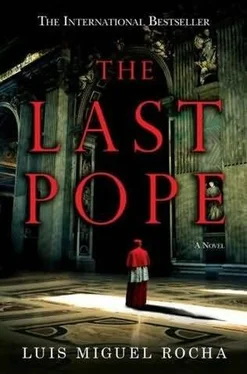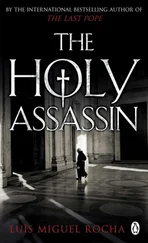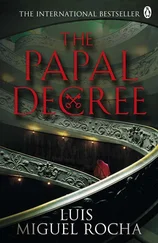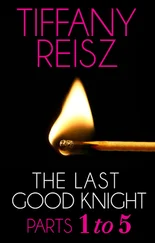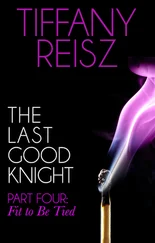“Now it’s your turn,” he said in a paternal tone, not so much addressing the personage in the photo as the task ahead, which he intended to carry out meticulously, as he had all the previous ones. He decided to go for a walk in the small Sunday market, perhaps to enjoy for the last time the flavor of a city he might not see again. He took off his jacket and his short-sleeved shirt revealed the tattoo of a serpent that extended down to his wrist. He put everything back in the envelope, after taking another look at the photo he had obtained in Buenos Aires from the home of the parish priest, Padre Pablo. The priest had another home now, a more permanent one, underground. The photo, if anyone was watching, showed only the face of Pope Benedict XVI.
CONCLAVE OF AUGUST 26, 1978
Let the peace of the Lord be with you, because I did absolutely nothing to get where I am.
ALBINO LUCIANI TO HIS FAMILY AFTER HE WAS ELECTED POPE
Annuntio vobis gaudium magnum: habemus papam,” Cardinal Pericle Felici proclaimed from the balcony of Saint Peter’s Basilica on the twenty-sixth of August 1978.
But in order for the Holy Spirit to decide who would be the next pontiff, the 111 cardinals had to have numerous meetings disguised as luncheons and come to many agreements disguised as inconsequential, polite chats. No one in the Vatican would admit that immediately after the death of Pope Paul VI, an aggressive electoral campaign had been launched. Those humble promotional ventures were modestly disguised by a false lack of interest.
Some prelates remembered with a smile the evening Cardinal Pignedoli, surrounded by his peers in the College of Cardinals, declared himself unqualified for the role being proposed for him. He declared it was best to vote for Cardinal Gantin, a black prelate from Benin. In this manner, the necessary scrutiny could be carried out by elimination rather than by selection. Acts like this didn’t single out any particular cardinal because many prelates did the same thing, declaring their humility and submission only to remind the others that actually they were the best option. Not all of the cardinals were aware of these electoral manipulations, posturing, and declarations of religious fervor. Albino Luciani, for example, in his disregard for these matters, took advantage of his stay in Rome to arrange repairs for his Lancia 2000, a vehicle that had served only to make his trips miserable. He told Diego Lorenzi, his assistant, that he wanted the car ready by the twenty-ninth, the day the conclave was supposed to be over, in order to return to Venice early that morning.
Though it was possible to guess the will of the cardinals, no one could be sure of the choice of the Holy Spirit. And this time an unexpected outcome seemed more likely, a decision arrived at in collaboration by the prelates and the Holy Spirit. Once more, the mysterious ways of the Lord demonstrated how unpredictable events could be.
After the morning vote was over, Albino Luciani was kneeling in prayer in cell number sixty. The results had not been conclusive, but there had been some unexpected results, such as the thirty votes Luciani received on the second scrutiny. As he prayed, he felt great uneasiness in the pit of his stomach, so instead of asking Divine Providence for courage and clarity of thought when voting for the best cardinal to occupy that position, he implored God to please take care of it and relieve him of a great burden. He prayed that the cardinals would cease voting for him, and for the Holy Spirit to inspire the prelates to write the name of Cardinal Siri on their cards. At last count, Cardinal Siri was only five points away from him. The third on the list of reluctant candidates was Cardinal Pignedoli, who, despite having lost prestige, received fifteen votes. He was followed by the Brazilian Cardinal Lorscheider, with twelve. Nineteen of the remaining votes were distributed among the Italian cardinals Bertoli and Felici, with a few for the Polish Karol Wojtyla, the Argentine Pironio, Monsignor Cordeiro (archbishop from Pakistan), and the Austrian Franz Koenig.
An unintended competition arose between Siri and Luciani. Cardinal Siri wanted to win, while the cardinal from Venice, Albino Luciani, wanted to flee, and might have done so had the doors to the Sistine Chapel not been closed.
Before entering the conclave, Don Albino told those present, as well as his relatives and friends, that if elected, he would utter the well-known formula, “I decline, for which I ask for your forgiveness.” But this was a possibility that he, like most others, considered very remote. However, His Holiness Pope Paul VI, on a visit in Venice to the Adriatic Queen, had not only granted Luciani a stole, but had personally placed it on his shoulders. That public gesture in the presence of a large group was quite unusual for Paul VI, and was his way of acknowledging the Venetian cardinal’s loyalty and his defense-due more to obligation than to devotion-of the encyclical Humanae vitae, one of the most unfortunate in history. In July 1968, Paul VI had issued that totally radical pastoral letter banning any device or method of birth control, of course including abortion, sterilization, and even the interruption of pregnancy when there was evident danger to the mother’s life. In Humanae vitae everything was up to a supposed divine order, to an improbable marital responsibility, and if need be, to chastity. As the pope decreed, the divine plan could not be subject to social, political, or psychological conditions.
These recollections of the past would have been irrelevant, were it not that Paul VI was among those mainly responsible for Albino Luciani’s dread of being elected by his peers and by the Holy Spirit.
“Let them choose Siri,” Luciani begged the Creator. “I have so much to do in Venice!” Paul VI, consciously or not, had placed Albino Luciani in that difficult situation. He had made him cardinal, made a public display of his preference, and graced him in word and gesture. But that responsibility could not be solely ascribed to him. Had John XXIII not made him bishop, he’d never have come to this, and had his mother, Bartola, not given birth to him (in Canale d’Agordo on October 17, 1912), he wouldn’t find himself in this position, either. He had to dismiss all these thoughts. God alone would be the one to decide. Everything must be following some divine plan. Otherwise, his hometown priest, Filippo Carli, wouldn’t have encouraged him to enter the seminary in Feltre.
After the first vote, Cardinal Luciani understood he was being swept up in the current of the conclave, and that it was not possible to ignore such an unfortunate situation, though he had naively attempted to go unnoticed, which had succeeded before, in different circumstances. On this occasion, his natural reserve and shyness had provided no escape, and the process was completely incomprehensible to him. How could he have expected twenty-three votes in the first scrutiny, two fewer than Siri and five more than Pignedoli? As required by regulation, after each scrutiny all the ballots were gathered and burned in the furnace.
Paul VI had foreseen every detail of the conclave, nothing had escaped him. The preceding pope was the one to make the regulations, and this pope, for the first time, had ruled that cardinals over eighty years old could not participate in the conclave. In the apostolic constitution Romano pontifice eligendo, Paul VI had set this limitation for religious reasons. The responsibilities of being elected the Church’s shepherd would no longer be added to the physical woes of being eighty. There were no frivolous concerns. The governance of the Church of Christ could not be left to chance. Some ignorant people lamented the fact that some pontiffs devoted themselves to practical matters instead of spiritual ones. But the Church didn’t depend solely on Hail Marys, as one American cardinal pointed out.
Читать дальше
